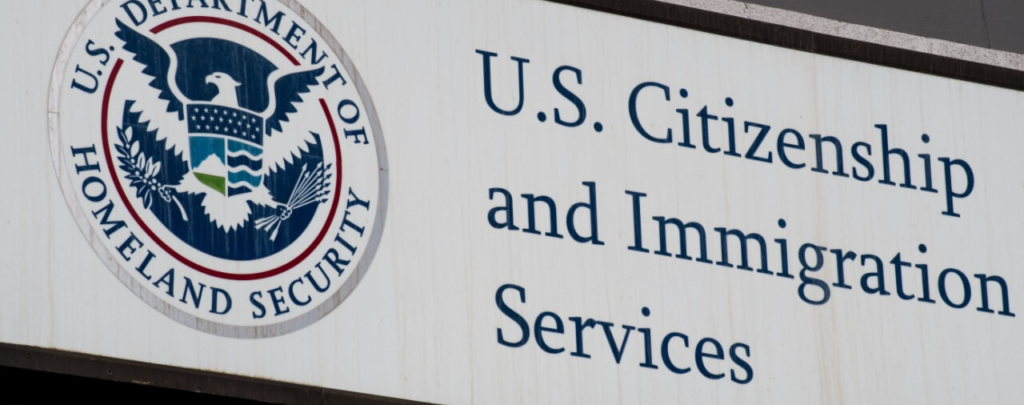On June 18, 2018, the United States Citizenship and Immigration Services (USCIS) issued a news release announcing its publication of data on the criminal histories of requestors for Deferred Action for Childhood Arrivals (DACA) [PDF version]. Along with the news release, the USCIS included the statistics [PDF version]. In this post, we will briefly examine some of the notable statistics of the criminal histories of DACA requestors.
The statistics cover DACA requestors from 2012 to 2018. In this time frame, there were 888,765 individual DACA requestors. The data reveals how many DACA requestors had arrest records at the time they were queried in USCIS systems. The term “arrests” includes civil apprehensions and does not reflect that the arrests resulted in convictions.
From 2012 to 2018, 770,628 DACA requestors were approved for DACA. Of these, 59,786, or 7.76-percent, had a prior arrest at the time systems were queried. 53,792 with a prior arrest were approved, whereas 7,814 were approved with a later arrest. By far the two most common reasons for arrest among approved DACA requestors were driving related offenses excluding driving under the influence (38.90-percent of all arrests) and immigration-related offenses (22.05-percent). Only two other arrest types made up more than 5-percent of the total arrests for approved DACA requestors: theft, larceny, and similar offenses (12.32-percent) and drug-related excluding driving under the influence (8.57-percent). The USCIS news release notes that some individuals were approved with arrests for other offenses, including serious ones, such as battery (4.65-percent), driving under the influence (4.42-percent), assault (3.73-percent), rape (0.06-percent), and murder (0.02-percent).
From 2012 to 2018, 66,863 DACA requestors were denied DACA. Of these, 20,993, or 31.40-percent, had at least one arrest. Unfortunately, the USCIS’s data does not include statistics on the nature of the arrests for those who were denied DACA benefits.
DACA requestors with no arrests were approved in 89.2-percent of all cases, and denied in 5.8% of cases. DACA requestors with exactly one arrest were approved in 70.8-percent of cases and denied in 17.5-percent of cases. Those DACA requestors with more than one arrest were approved in 54.8% of cases, while 33.5-percent of such cases were denied.
It is worth noting, however, that the vast majority of DACA requestors (797,297 in total) had no arrest record when the system was queried.
For a more detailed breakdown of DACA approvals and denials by number of arrest, please see the following table copied from the seventh and final page of the USCIS set of data:

Notably, the USCIS news release focused on the cases in which individuals who had been arrested for serious crimes were nevertheless granted DACA. To this effect, USCIS Director L. Francis Cissna stated the following:
The truth is that we let those with criminal arrests for sexually assaulting a minor, kidnapping, human trafficking, child pornography, or even murder be provided protection from removal. Yet the courts rule that we are unable to change this policy — even though those with criminal histories are getting through the system and permitted to remain in the country, despite having a high number of arrests for any types of crimes before or after receiving DACA protection.
Although the USCIS Director took the position that court orders prevent the USCIS from changing the DACA criteria, he stated that the data “only reinforces the need for continued review and scrutiny…”
The USCIS news release explains that an individual may be granted DACA “if he or she has not been convicted of a felony, significant misdemeanor, or three or more ‘non-significant’ misdemeanors not arising out of the same act, omission, or scheme of misconduct, or does not otherwise pose a threat to national security or public safety.” It is for this reason that the number of arrests that a DACA requestor has is not, in and of itself, dispositive on whether he or she will receive DACA as a matter of discretion.
The DACA statistics show that the majority of DACA requestors with one or more arrests were ultimately granted DACA. The majority of these arrests were for criminal matters, but a significant minority were civil immigration-related. Unfortunately, the statistics do not show how many of the arrests ultimately led to a criminal conviction. However, it is also worth noting that the vast majority of DACA requestors did not have arrest records at the time the USCIS systems were queried.
We have discussed in detail on site that the future of DACA is uncertain. Although the Department of Homeland Security (DHS) rescinded the Memorandum underlying the program on September 5, 2017, multiple Federal district courts have issued injunctions against the rescission, directing the DHS to continue administering the program. Please see our full article to learn about the issues and the most recent updates [see article]. Those with DACA or who are requesting DACA should consult with an experienced immigration attorney for case-specific guidance. Although an arrest does not by itself lead to an individual losing DACA or being ineligible for DACA, any alien who is arrested should consult with an experienced immigration attorney immediately for guidance on what different case outcomes could mean for his or her overall immigration situation. Those with DACA who have prior arrests should discuss their criminal history with an attorney for guidance on how it may affect their eligibility for more permanent forms of relief from removal or legal immigration status. It is important to note that individuals who are in the United States without authorization and who lack DACA or other forms of protection from removal are priorities for removal under current guidelines [see article]. Please see our website’s growing section titled “Criminal Aliens” to learn more about the intersection of immigration and criminal law [see category].





